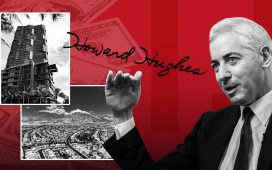Unlock the Editor’s Digest for free
Roula Khalaf, Editor of the FT, selects her favourite stories in this weekly newsletter.
Steve Schwarzman, soothsayer. At the outset of Thursday’s earnings call, Blackstone executives took a victory lap in honour of their predictive powers.
The private capital titan claimed prescience both in sensing higher inflation in 2021 and subsequent easing of price levels in 2023.
This knowledge, Blackstone said, stemmed from its portfolio of hundreds of companies and thousands of real estate positions which together provided on-the-ground data points as economic portents.
Still, Blackstone’s overall profits dipped last year. But shareholders expect a rosy future. The share price has rallied 66 per cent since the start of 2023 on the belief that a soft economic landing and broader rising tide in private assets will leave Blackstone a winner.
Cash, or “distributable” earnings, at Blackstone, however, fell by a quarter year over year. This was driven by a steep decline in sold investments known as realisations and the associated incentive fees. But Blackstone said that rallying financial markets would finally pave the way for IPOs, M&A and cash-outs in 2024.
Blackstone’s marked returns by asset class also proved interesting. Last year, Schwarzman crowed about the attractiveness of private lending. For the year, such bespoke corporate loans yielded returns of a whopping 16 per cent, ahead of the 12 per cent Blackstone recorded in the ostensibly juicier corporate buyout segment. Even its liquid debt book jumped by 13 per cent.
Among current predictions, Blackstone’s president Jon Gray said that the commercial property industry sector has or will soon reach its bottom. Blackstone is the largest real estate investor in the world. While its other segments enjoyed strong returns last year, its massive real estate book was marked down by a few points, partly due to inflation rate hedges that slipped amid falling rates.
Gray said that while US apartment construction had soared in recent years, an ongoing “housing shortage” in America would keep pushing rents higher in a boon for landlords like Blackstone.
Shares of Blackstone still remain more than a tenth below their 2021 peaks, despite accounting for a sharp rise in upcoming asset sales. Blackstone is the first trillion dollar manager and has a market value of $140bn, a figure it said made it the most highly valued asset manager in the world.
Smaller rivals like Apollo, Ares and KKR have experienced somewhat sharper share price appreciation, based on faster asset growth. There is scope for growth in infrastructure, insurance and retail products for Blackstone. But questions about maturity is one for the crystal ball.

Lex is the FT’s concise daily investment column. Expert writers in four global financial centres provide informed, timely opinions on capital trends and big businesses. Click to explore











